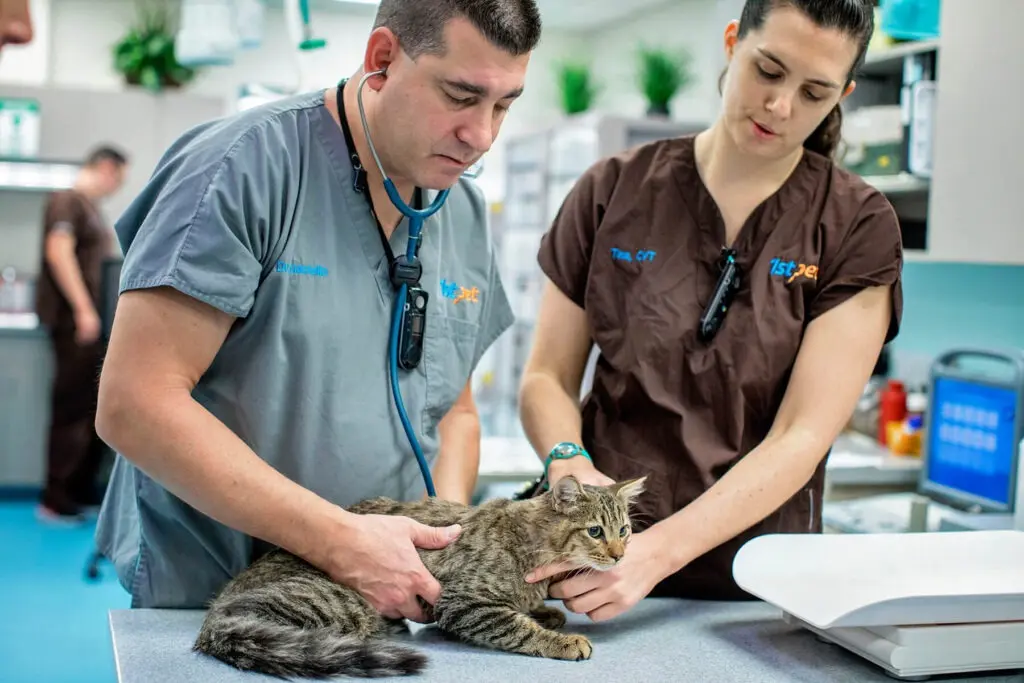As a responsible pet parent, you take great strides to ensure your cat is fed quality food, loved, and taken to the vet whenever they are sick. However, there is a feline virus that you might have heard of that can wreak havoc on your cat’s health and spread to the other cats in your home: feline leukemia virus, or FeLV.
Here are the answers to a few frequently asked questions you might have about feline leukemia virus.
What Exactly Is Feline Leukemia Virus?
Although it sounds like a form of cancer, FeLV is actually a specific type of virus called a retrovirus. Once it has infected your cat, FeLV attacks the immune system, which makes it difficult for your pet to fight off other infections.
When a cat is infected with the virus, it first attacks the lymphatic system. If the cat is healthy and strong, it might be able to fight off the virus and continue to live a happy and active life.
Unfortunately, if the virus is not destroyed, it will make its way into the cat’s bone marrow and begin attacking the white blood cells, which are the cells that fight off infection. If your cat is infected with FeLV, it might become sick right away. However, in many cases, the virus will remain in the cat’s bone marrow for several months or years, and it will begin to attack the immune system later in the cat’s life.
Why Is This Virus Dangerous?
FeLV is potentially dangerous to cats for several reasons. The virus can remain dormant for long periods of time, which means that it can be unknowingly spread to other cats. Cats whose immune systems have been compromised by FeLV are left susceptible to potentially dangerous illnesses, including anemia, respiratory infections, diseases of the intestines, and reproduction issues.
Feline leukemia can be spread from a mother cat to her kittens, which is extremely dangerous for the litter. A kitten’s immune system is underdeveloped, and because of this, in many cases a kitten who is infected with FeLV will not survive.
What Are the Signs of Feline Leukemia Virus?
Once again, a cat who is infected with feline leukemia might not show any symptoms for several years. Cats who are infected will often experience periods of relative health followed by periods of illness and a variety of symptoms.
If your cat becomes sick often and exhibits the following symptoms, they might be infected with feline leukemia:
- Fever
- Large lymph nodes
- Poor appetite
- Pale gums
- Gingivitis
- Conjunctivitis
A female cat who is infected with FeLV may suffer from miscarriages, and if they do have their litter, the kittens will be infected and be very sick.
What Should I Do If My Cat Tests Positive?
If you suspect your cat is infected with feline leukemia, talk to your veterinarian immediately. There are two different blood tests available, and each of these will provide your veterinarian with an accurate diagnosis. Often, if a cat does test positive, the veterinarian will retest them at a later date. This is to ensure that the initial test’s results were accurate.
Testing positive for FeLV is not necessarily a death sentence. In fact, many cats who are FeLV positive will lead normal lives. For cats whose FeLV infection has left them immunosuppressed and susceptible to opportunistic infections, there are treatment options available. There is no known cure for feline leukemia. Instead, your veterinarian will work with you to ensure that your cat remains healthy and will treat any symptoms as they arise.
For example, if your cat is suffering from a bacterial infection, your veterinarian will administer an antibiotic. Anemia is another common condition that is found in FeLV-infected cats. Treatment for anemia is typically a blood transfusion.
The best way to care for your FeLV-positive cat is to provide them with a healthy, stressfree environment and to contact the veterinarian immediately after your cat becomes ill. Keeping your cat away from other cats will help prevent the spread of opportunistic diseases. Your veterinarian might also recommend supplements to help boost your cat’s immune system.
How Can I Protect My Cat From Feline Leukemia Virus?
There are several ways you can protect your healthy cat from FeLV. Ask your veterinarian about the FeLV vaccination and its efficacy. If you are planning to bring another cat into your home, have the cat tested for FeLV prior to introduction to your cat. The virus is spread through saliva, urine, feces, and nasal excretions. A healthy cat that is bitten by or shares food or water with a FeLV-positive cat is at risk for exposure.
Keeping your cat inside at all times will also reduce their risk of exposure.
Feline leukemia, or FeLV, is a serious and can be a life-threatening virus that can impact your cat’s health and quality of life. If you have any further questions, contact the professionals at 1st Pet Veterinary Centers.

